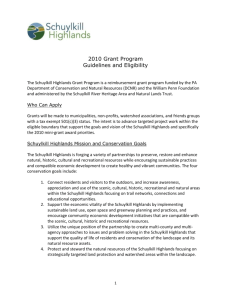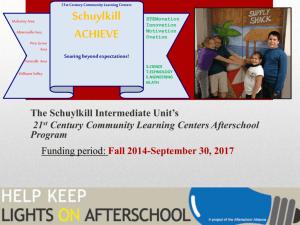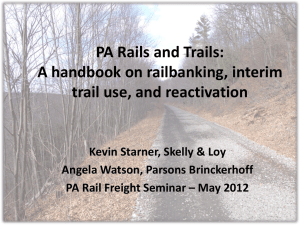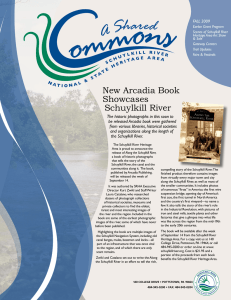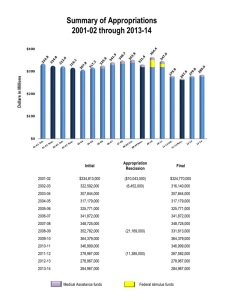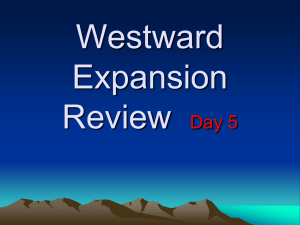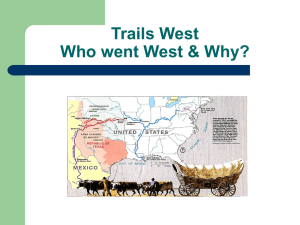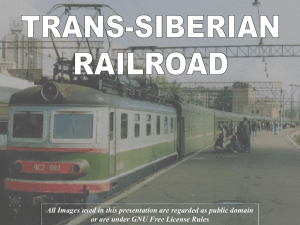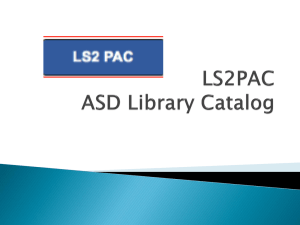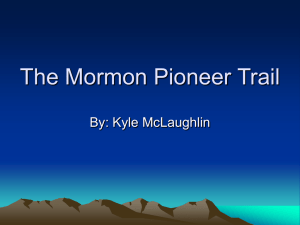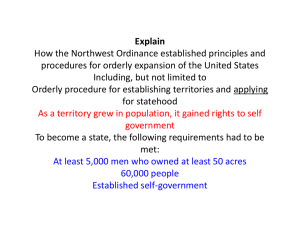of the Lower Schuylkill
advertisement
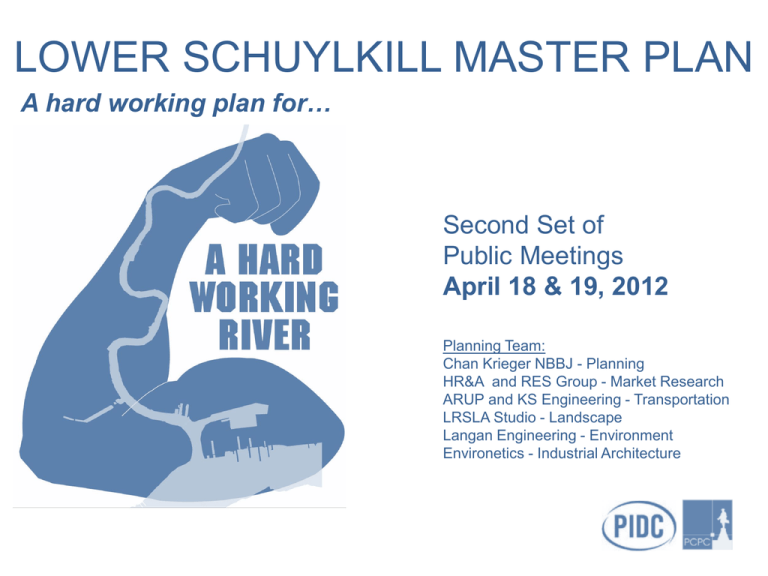
LOWER SCHUYLKILL MASTER PLAN A hard working plan for… Second Set of Public Meetings April 18 & 19, 2012 Planning Team: Chan Krieger NBBJ - Planning HR&A and RES Group - Market Research ARUP and KS Engineering - Transportation LRSLA Studio - Landscape Langan Engineering - Environment Environetics - Industrial Architecture What is the Lower Schuylkill? 4,100 acres of historically industrial land • Most land is zoned industrial • Primary uses: refining, utilities, freight rail, transportation and scrapyards • Limited residential (approx. 5%) 68% of the City’s vacant and under-utilized industrial land is concentrated here 2 Why do we need a Master Plan for the Lower Schuylkill? • Identified as a key industrial redevelopment area by: • Industrial Land Utilization and Market Strategy for the City of Philadelphia • Philadelphia2035 • Jobs were lost over the past as businesses downsized, relocated or closed (e.g. DuPont, MAB, Sunoco) • Remains isolated and disconnected despite being strategically located • Access challenges and site conditions have deterred market-driven, parcel-byparcel redevelopment • Several large-scale recent projects signal change and opportunity (e.g. Food Distribution Center, U.S. Postal Service) 3 Key Assets in the Lower Schuylkill • Strategic location: in between PHL, University City, the Navy Yard and Center City • Large parcel sizes • Industrial character & zoning • Proximity to transportation networks • Existing infrastructure • Historic assets (Bartram’s Garden, Woodlands) 4 … and there is a river that runs through it! Challenges • • • • • • Contamination Constrained highway access Poor internal road network Outdated infrastructure Lack of public river access Significant amounts of rail infrastructure • Complicated site control issues • Blight 6 6 Principles of the Master Plan 1 - Create an Identity for the Lower Schuylkill 2 - Connect the Lower Schuylkill 3 - Protect and Foster Diversity and Flexibility 4 - Reveal the Hidden River 5 - Prioritize Job Creation and Growth 6 - Restore Land and Water with Green Infrastructure Vision for the Master Plan To create an innovative 21st century industrial district for GEDs to PhDs 8 JOBS & ECONOMIC DEVELOPMENT EMPLOYMENT DISTRICTS C. Active Industry A. Innovation District Energy production: R&D, Advanced Manufacturing: • Oil refining, pending the outcome of current efforts to sell the refinery • Later stage R&D • Biotechnology • Material science • Hospital-related industries D. Essington • University-related uses • Medical devices Airport and Transportation Uses • Fabricators • Just-in-time uses that require airport proximity B. North Yard I-95 • Transportation, warehousing and distribution Distribution/ warehouse: • Regional and local distribution with potential for rail service • Airport service providers • Airport-related uses • Warehousing Vision Overview • Traditional manufacturing LOWER SCHUYLKILL RIVER MASTER PLAN INNOVATION DISTRICT Innovation District • Build on momentum of Penn’s redevelopment at South Bank • Extend University-related use to Bartram’s Crescent on west side of Schuylkill River • Unlock potential of site with N/S road on west side of the river • Take advantage of university demands for open space and recreation • Consider existing space for “start up” business to spur further growth INNOVATION DISTRICT – EAST BANK Long-term potential redevelopment site (Waste Management and Trolley Works) South Bank (Penn) University City Woodland Cemetery Mixed-use gateway at Grays Ferry and 34th Street Forgotten Bottom Neighborhood INNOVATION DISTRICT – WEST BANK R&D and Advanced Manufacturing University of the Sciences Rec Center Renovation of existing structures Active waterfront INNOVATION DISTRICT – ECONOMIC OPPORTUNITY The Lower Schuylkill Innovation District will help Philadelphia’s innovation employment base remain competitive nationally. 90 82k 80 76k 70 53k (000s) 60 51k 50 8k 45k 40 30 24k 20 10 0 Baltimore Denver Current Innovation Employment* Philadelphia San Francisco Washington, D.C. Projected Lower Schuylkill R&D Park Employment *Based on HR&A assessment of 2010 employment data from the Bureau of Labor Statistics. LOWER SCHUYLKILL RIVER MASTER PLAN THE NORTH YARD Sunoco North Yards: 250 acres Looking north to Bartram’s Garden over new waterfront park • Assemble and prepare parcels for advanced manufacturing, traditional manufacturing and warehouse/distribution (location and need dependent). • “Shovel ready” underutilized sites and single ownership allow for more immediate development • North Yard offers large parcels and access to I-76 • Extension and improvements to 34th St provides connection between the North Yards and University City THE NORTH YARD Philadelphia Gasworks PASSYUNK BRIDGE Sunoco West Yards Sunoco Active Refinery Looking north to Bartram’s Garden over new waterfront park ESSINGTON Likely to remain Wholesale/Distribution: • Airport related uses • Evolution of car dealerships into distribution DEALERSHIPS/SCRAP • Take advantage of airport related uses • Infill development where possible • Retrofit green infrastructure Produce Center Eastwick Industrial District • Provide connectivity to river and neighborhoods ESSINGTON DEALERSHIPS/SCRAP Eastwick Industrial District Establish the Campuses: Essington ACTIVE INDUSTRY • Currently an active refinery • Sunoco plans to sell or idle the facility by the summer of 2012 • Future plans hinge on the success of those efforts • Any long-term re-purposing will involve substantial site work and infrastructure removal HOW DO WE ACHIEVE THIS TRANSFORMATION? Economic Tools Increase Potential for Growth Annual Growth Space Acres Est. Jobs Baseline 280k SF 23 200 Potential Growth 450k SF 39 480 Total CityWide Growth 1.5M SF 129 1,600 Land Use Framework Infrastructure Improvements Public Leadership Long-Term Innovation Strategy LOWER SCHUYLKILL RIVER MASTER PLAN RECONNECTING THE LOWER SCHUYLKILL INFRASTRUCTURE IMPEDIMENTS • No direct connection between I-95 and I-76 West • Highways and rail viaducts obstruct local access • I-76 establishes barrier to site on the east side • Few east-west connections are available for cross-city destinations • Bridge crossings are far apart (up to 2 miles at points) • N/S circulation is limited to highway and Lindbergh Blvd (no internal N/S route) IMPROVE NORTH-SOUTH CONNECTIVITY Overall north-south connections are necessary to: Provide N/S circulation within the study area o Provide an alternate route between the airport and University City/Center City for passenger vehicles o Unlock access and development potential for parcels on the west side of the river north of Passyunk o Direct truck traffic to Essington/Passyunk for internal N/S truck circulation o I-95 IMPROVE NORTH-SOUTH CONNECTIVITY Phased river road on the West Side: • • • • • I-95 Provides an amenity for future development Provides a trunk for new streets to branch off Establishes a destination for neighborhood streets Supports a revived waterfront Provides recreational amenity adjacent to it KELLY DRIVE - PHILADELPHIA MEMORIAL DRIVE - CAMBRIDGE IMPROVE NETWORK AND CONNECTIVITY New arterials will significantly improve: • • • I-95 North-south and east-west access to and through the study area for residents, businesses and employees Circulation within the Study Area Access to and from development sites IMPROVE NORTH-SOUTH CONNECTIVITY Stengthen Essington-Passyunk spine as the main goods movement road: • • • • PROPOSED I-95 EXISTING Connections to I-76 and Bartram Ave Connections into center of study area Ties to new river road at Passyunk Bridge Create a new green street opportunity IMPROVE NORTH-SOUTH CONNECTIVITY • Future 47th Street connection creates access to parcels on the west side of the river WEST SIDE • 34th St improvement and extension proposes a more people friendly streetscape and connection to area south of Grays Ferry Ave EAST SIDE PASSYUNK BRIDGE University of the Sciences Establish the Campuses: Bartram Connector LOWER SCHUYLKILL RIVER MASTER PLAN IMPROVE EAST-WEST CONNECTIVITY 1. New through streets provide additional connectivity for the city: >Snyder Avenue to 58th Street 1 2 2. Connect people from one area of the city to resources in another adjacent, but hard to reach area: >Southwest Philadelphia to FDR Park (63rd to Pattison) 3. Reduce crossing opportunities which can be as far as two miles apart I-95 Existing Bridge and Connection Proposed Bridge and New Connection INTERNAL ACCESS & CIRCULATION New Road Network: • Large “block” structure to allow for future sub-division and internal streets • Creates east-west connections through site and into adjacent neighborhoods • Creates riverfront road to spur development and establish city-wide connections I-95 Existing Road- unaltered Existing Road- retrofit Big Moves: Transportation New Road CREATE A HARDWORKING ROAD NETWORK “Green Street” network provides high-quality access and circulation with great aesthetics and stormwater management capabilities I-95 Green Connections SIGNATURE GATEWAYS SUPPORT NEW IDENTITY Create significant gateways: • Create iconic site entrances for vehicles, pedestrians, cyclists • Connect to surrounding neighborhoods • Provide clear wayfinding to the site • Address rail crossing challenges Gateway to LAX I-95 Michigan Ave pedestrian undercrossing FUTURE TRANSIT OPPORTUNITIES • Shuttle connection to University City area and possible future rail station TRANSIT • Shuttle Extension as Area A develops southward • Potential east side shuttle route depending on land use and density of new TRANSIT development • Shuttle extension connecting to possible future rail station as Area C develops TRANSIT • Future rail station at Eastwick if density warrants ENVIRONMENT & GREENSPACE From Greenworks Philadelphia GREEN INFRASTRUCTURE GREEN INFRASTRUCTURE Proposed: 147 acres of Study Areas Open Space is dedicated to stormwater management 8.3 acres BUILD A DISTRICT-WIDE TRAIL NETWORK Bike Network • Extend the Schuylkill River Trail • Connect to existing and future destinations, including: • • • • Bartram’s Garden FDR Park Fort Mifflin Heinz Wildlife Refuge • Connect to the East Coast and Cobbs Creek Greenways • Develop a multi-purpose trail network which: • • • Provides an amenity for residents and employees Supports on-road and off-road trails Functions as part of a comprehensive stormwater management system CONCEPTUAL RIVER TRAIL Typical Trail Section at River: Bulkhead Typical Trail Section at River: Wetlands NEIGHBORHOOD ACCESS TO THE RIVER 47th Street 58th Street Wharton St 63rd Street Snyder Avenue 75th Street Pattison Avenue ADD NEW PARKS Woodland Cemetery Cobbs Creek Bartram’s Garden East Side Open Space Yankee Point Park Penrose Park To Fort Mifflin FDR GREENSPACE NETWORK - YANKEE POINT PARK Louisville Boston • Yankee Point peninsula has the potential to be a strategically located park and greenspace area • Potential features include: •River Trail •Open Space •Boat Access •Sports Fields •Wetlands GREENSPACE NETWORK - Park NORTH YARD East Side • Potential for open space along the river’s edge Wetlands Open Space University Athletic Fields River Trail Access GREENSPACE NETWORK - PASSIVE RECREATION GREENSPACE NETWORK - ACTIVE RECREATION GREENSPACE NETWORK - ATHLETIC FIELDS • The Lower Schuylkill contains multiple sites which may be suitable for a university athletic field complex • Why athletic fields? • Athletic fields bring value to sites with conditions that can’t support more intensive development • Athletic fields can augment stormwater management systems Overall Vision Facilitated Discussions Please take time to visit the four stations to share your thoughts and VOTE Facilitators will explain each station’s key questions that will help us prioritize 1 JOBS & ECONOMIC DEVELOPMENT 2 ROAD INFRASTRUCTURE & TRANSIT 3 ENVIRONMENT & GREENSPACE 4 IDEA DEPOT 50 30.8% TO We Must 30.8% TO We Must 30.8% In Order to Enjoy the Benefits of Al …. of the Lower Schuylkill Vision: Connections and Open Space Network
